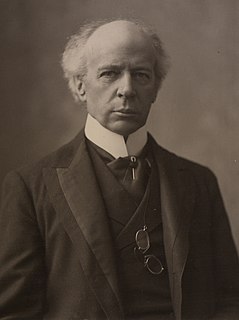A Quote by Allen W. Wood
Kant has been famous for his rejection of eudaimonism, but I think Kantian ethics has a great deal in common with Aristotle, and some things in common with Stoicism as well. The traditions tend, I believe, to talk past each other when it comes to happiness or eudaimonia.
Related Quotes
We are here a nation, composed of the most heterogeneous elements-Protestants and Catholics, English, French, German, Irish, Scotch, every one, let it be remembered, with his traditions, with his prejudices. In each of these conflicting antagonistic elements, however, there is a common spot of patriotism, and the only true policy is that which reaches that common patriotism and makes it vibrate in all toward common ends and common aspirations.
We have a common enemy. We have this in common: We have a common oppressor, a common exploiter, and a common discriminator. But once we all realize that we have this common enemy, then we unite on the basis of what we have in common. And what we have foremost in common is that enemy - the white man. He's an enemy to all of us. I know some of you all think that some of them aren't enemies. Time will tell.
Beyond these models of reconciliation, a theology of mysticism provides some hope for common ground between Christianity and Islam. Both religions have within their histories examples of ecstatic union with God, which seem at odds with their own spiritual traditions but have much in common with each other.
We need to employ a secular approach to ethics, secular in the Indian sense of respecting all religious traditions and even the views of non-believers in an unbiased way. Secular ethics rooted in scientific findings, common experience and common sense can easily be introduced into the secular education system. If we can do that there is a real prospect of making this 21st century an era of peace and compassion.
Kantians are saddled with absolutist views, Aristotelians are accused of vagueness, and there is almost no horror to which Consequentialists are innocent of, according to some critics. While all these families of views have been victimized in these ways, Consequentialists have gotten the worst of it. I think this may have something to do with the fact that Kant and Aristotle are acknowledged to be great philosophers, and we tend to read the greats sympathetically, while Consequentialism is a family of views not rooted in the work of a single great man to whom this kind of deference is owed.
Friends don't have to have a lot of things in common. But there's one thing friends usually do have in common - a sense of humor. That doesn't mean they find all the same things funny. Sometimes, they might even laugh at each other. But at the end of the day, friends can always laugh with each other.
What binds us together is not common education, common race, common income levels, common politics, common nationality, common accents, common jobs, or anything else of that sort. Christians come together because they have all been loved by Jesus himself. They are a band of natural enemies who love one another for Jesus' sake.
Kant's description of most ethical duties reads more like a description of moral virtues and vices. Once we see this, we see that Kantian ethics is indeed a kind of virtue ethics, and that it does not "divide the heart from the head" (to anticipate one of your later questions) but instead recognizes the deep truth that reason and emotion are not opposites.
































